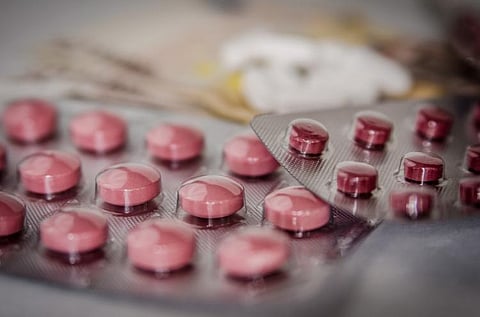

More than 10% of the TB cases diagnosed in India have been found to be resistant to a number of the standard drugs used to treat the disease.
The organisation ‘Doctors Without Borders’ has expressed their concern over the high cost of the new TB drug delamanid which is being developed by Otsuka, a Japanese pharmaceutical company, which is planning to charge developing nations a whopping US $1700 per course of the drug.
Delamanid is one of the two new drugs which have been found to effectively combat multidrug resistant TB and at present must be taken in combination with certain other drugs to effectively treat the disease.
The United States is reportedly putting pressure on the UN to modify existing trade laws which currently provide affordable second-line anti-tuberculosis drugs to different countries.
Countries at the UN are currently discussing how to effectively eliminate tuberculosis. It was here that reports came out, alleging that the United States was interfering with the current Trade-Related Aspects of Intellectual Property Rights (TRIPS), which safeguards the accessibility and affordability of tuberculosis medications and tests.
If the current guidelines of TRIPS are relaxed, it is likely that only a few hundred people suffering from a drug-resistant form of TB in India will have access to these medications.
“Tuberculosis is one disease which has effectively evolved against the medications we have always used to treat it,” explains Dr Rajakumar K, a General Physician from Chennai, adding, “In the past few years especially, we are seeing highly-resistant strains of tuberculosis for which we cannot depend on the usually used ‘Isoniazid’ or ‘Rifampicin’ medications.”
At present, when a doctor detects a case of TB, they are required to report the same to the state and have to ensure that the person follows a strict treatment for six months.
“India has largely adopted the ‘DOTS’ therapy model to combat the high rates of TB, and the fact that the medicines are cost-effective has been a major advantage in this aspect,” adds Dr Rajakumar.
‘DOTS’ or ‘Directly Observed Therapy,’ was undertaken in the country wherein rural health care workers would go door to door and observe that identified patients with tuberculosis were indeed taking their medications properly for the given course of 6 months.
Isoniazid, Rifampicin, Ethambutol, and Pyrazinamide are the first-line of drugs given to patients.
Patients found to have a strain of tuberculosis resistant to these drugs are given a second-line treatment. For those found to have multidrug resistant tuberculosis, Delamanid has been proven to be effective, and if prices for the same are not kept under control, millions of people in India alone will suffer.
Tuberculosis is caused by the bacteria Mycobacterium tuberculae and is spread through air droplets, from an infected person. While the disease commonly affects the lungs, it can be seen in the intestines, bones and other parts too.
In March of this year, the Prime Minister announced his plan to help India eliminate TB by 2025, by implementing a ‘National Strategic Plan’ for the same, with a funding of over Rs 12 crore to treat everyone in the country diagnosed with TB.